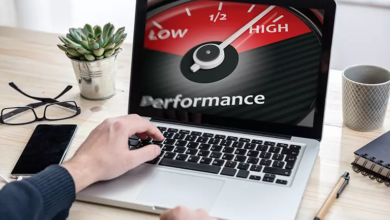How GPS Monitoring Is Used in the Logistics Industry

In the logistics industry, accuracy, speed, and control are key factors for efficiency. That is why GPS monitoring has become an integral part of modern transport processes. By constantly tracking the location of vehicles, cargo, and routes, companies can minimize delays, reduce costs, and improve transportation safety. One of the most important stages of implementing such technologies is the fleet tracking system installation, which allows integrating GPS solutions into the daily work of the vehicle fleet.
What Is GPS Tracking?
First of all, it is worth briefly explaining what GPS monitoring is. We are not talking about navigation, which is currently used by almost every driver. Vehicle tracking uses the same geolocation technology, but it is used not to determine the best routes to the destination, but for comprehensive monitoring of the vehicle fleet.
A GPS locator installed in each vehicle, together with the appropriate software, allows you to track their location on the map on an ongoing basis. They make the work of logisticians much easier, including due to various additional functions. The GPS device can be connected to an on-board computer, tachograph, and other devices, thereby providing remote access to a large amount of useful information.
What Are Real-Time Tracking Technologies?
Real-time monitoring systems are comprehensive solutions that record and transmit data on the location and condition of transport units or cargo at all stages of movement. They combine various types of equipment, such as GPS navigators, RFID tags, and sensors, with digital communication channels and analytical platforms.
This integration creates a single information environment in which all participants in the logistics process have access to up-to-date data and can quickly make decisions.
New tracking technologies provide companies with tools for complete control over transport operations. Among the functional capabilities is the collection and transmission of real-time information on location, speed, temperature, humidity, and other parameters:
- Virtual zones (geofences) — allow you to set up conditional route boundaries and receive alerts when they are crossed.
- Analytics and reporting module — provides valuable statistical data, simplifies the identification of bottlenecks, and facilitates informed decision-making.
- Integration with corporate IT systems — ensures continuous data exchange between logistics, inventory management, and other departments.
Installation services for such solutions are provided by Safety Net Installations.
See also: Why HRV Is So Important for Your Health and Wellbeing
Where Can GPS Tracking Technologies Be Applied?
GPS tracking technologies have long gone beyond simple navigation and have become an integral part of various spheres of life and business. Due to their accuracy and versatility, they find application in a wide variety of tasks.
Vehicle Tracking System for Tracking and Route Planning
Tracking and route planning are one of the main functions available with GPS monitoring. You can monitor the location of all vehicles in real time using the map in the operating program of the system, as well as view the route of each vehicle individually.
The system collects information about speed, stops, and the route taken. For example, this helps to see when a delay problem occurred. All this data and the reports generated on its basis also facilitate the planning of future trips and decision-making in case of a sudden change in route.
GPS Monitoring for Monitoring Drivers and Working Hours
GPS monitoring is also great for monitoring the driver. The satellite vehicle monitoring system allows you to check, among other things, the history of routes and stops. The current location of the vehicle, visible on the map, makes it easier to contact the employee in case of an unforeseen situation.
Various trip data can be used to automatically generate reports that help evaluate the performance of drivers. The satellite vehicle monitoring system allows you to check the number of hours spent on the road. It can also send notifications when the vehicle leaves a designated area.
The functions obtained after connecting the GPS device to the tachograph are also extremely useful. Thanks to this, you can read the data from the tachograph and the driver card remotely, without physical access to the car. This makes it easier to obtain the necessary information and fulfill the employer’s obligations in this regard. Thanks to this, you will never have to worry about penalties for late readings.
GPS in Logistics — Monitoring Vehicle Parameters
With the vehicle monitoring system, you can also remotely monitor their parameters. The connection with the on-board computer provides access, for example, to data on the current speed and engine speed, as well as the average fuel consumption or the current fuel level.
This type of information, subjected to appropriate analysis, helps to evaluate the driver’s driving style and check whether he needs eco-driving training. Thanks to this, the company can achieve significant savings of up to several tens of percent on current fuel costs.
GPS Monitoring — Easier Inspection Control
GPS monitoring tools can also be used to monitor maintenance dates. This function is available in some types of software. It allows you to manage technical inspections and receive notifications about upcoming dates.
Thanks to this, you can definitely better ensure the safety of employees, the vehicles themselves, and the passengers and cargo they carry. This function also allows you to avoid fines for missing a mandatory maintenance date.
Vehicle Tracking System — Protection Against Theft
It is true that a vehicle tracking system alone is not able to stop a thief from stealing a vehicle, but it can help to quickly return the lost one. With the ability to constantly monitor the location, it is possible to quickly intercept the stolen car.
GPS monitoring in such a situation greatly facilitates the work of law enforcement agencies. Additional features are also important, such as alerts sent when the vehicle leaves a designated area. Moreover, in some cases, it is possible to remotely activate, for example, the ignition switch.
Vehicle tracking also helps to prevent fuel theft, as it can monitor the liquid level in the fuel tank and send notifications if it runs out.
Conclusion
The use of GPS monitoring in logistics opens up wide opportunities for companies: from increasing delivery accuracy to reducing fuel and maintenance costs. Properly installed tracking systems in a vehicle fleet allow for transparent and effective control over vehicles, which is especially important in the face of high competition and growing customer demands. By implementing such solutions, logistics companies take a confident step towards digitalization and the sustainable development of their business. If you are interested in installing such solutions, we recommend paying attention to Safety Net Installations.




